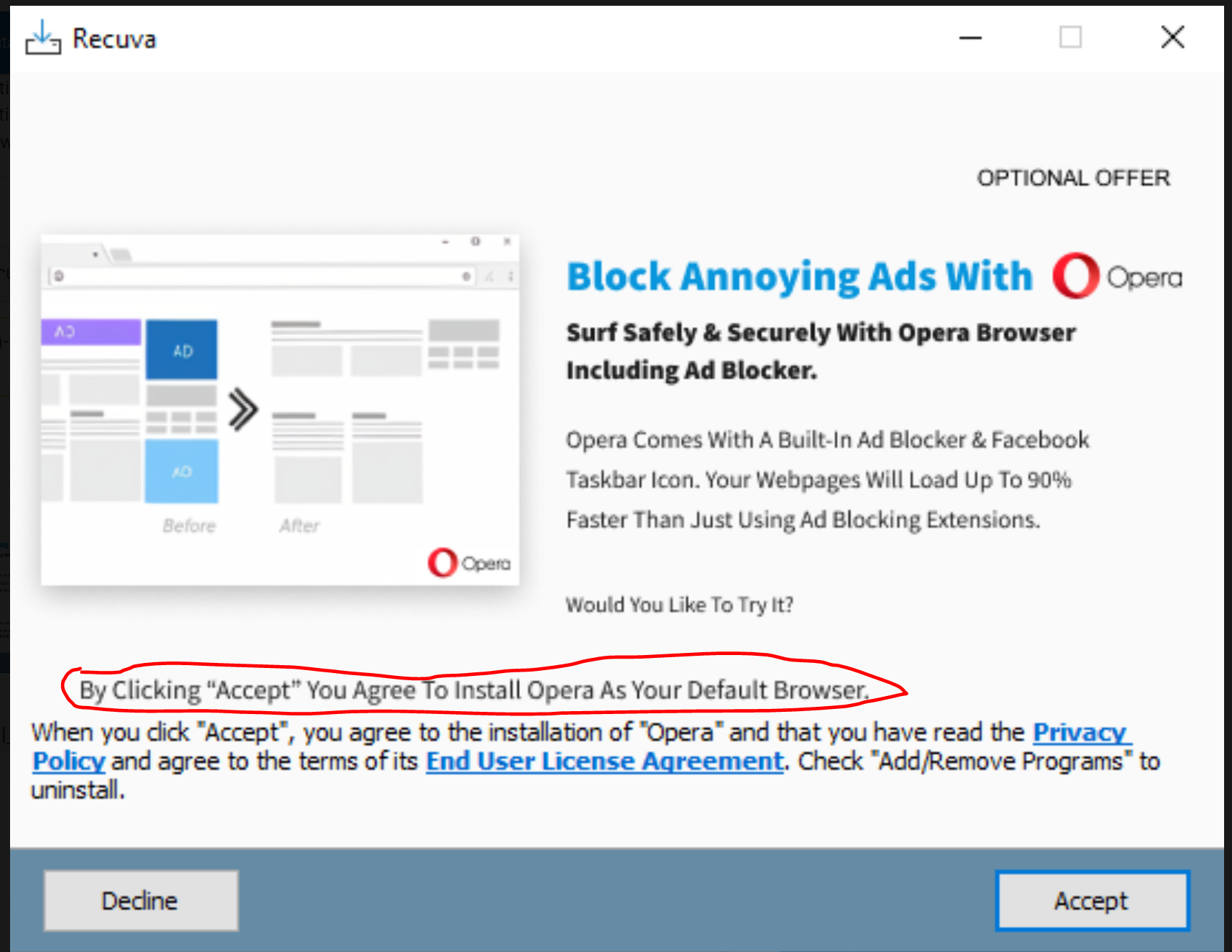We've recently noticed that some bundlers are helping apps with sneaky (and insufficient) ways to obtain what they claim is informed user consent.
Here's an example. Let's say you're installing a game on your PC. Once the game is installed, you get an offer for a free super cool web browser. In this case, the game installer is considered a "bundler", and if you do install that web browser, that company will pay the game vendor.
Now imagine that, in the fine print, the offer claims that your acceptance means that you agree to set the super cool web browser to be your default browser. Here's a pic of just such an offer for Opera while the consumer was installing Recuva:

The bundler may claim that you gave informed consent to change your default browser setting, but they're wrong. That's because only the app that needs your informed consent may obtain it. In the above example, Opera (and not the Recuva installer) needs to obtain informed user consent to set itself as your default browser.
It isn't hard for Opera to obtain your informed consent. They can ask you after they're installed if you want them to be your default web browser, or they can ask you during their install (instead of installing silently).
So hopefully it's clear that bundlers cannot obtain your informed consent for anything, including changing default programs or search, lowering your security posture, or transmitting sensitive information about you. If we see a bundler trying to trick consumers into thinking that they gave their informed consent, we'll take the following steps:
- We'll call out the bundler as an active Deceptor for failing ACR-014, which requires that an app "Is truthful and not misleading or confusing with the intent to deceive; can be substantiated; is not unfair."
- We'll call out any third party ad network (in this case, it was Rise making the offer), who knows better than to try to trick the consumer into granting insufficient consent.
- We'll call out the app that claims other apps and websites obtained informed user consent on their behalf. It's the job of the app to obtain informed user consent, not to ask another program or website to get it for them.